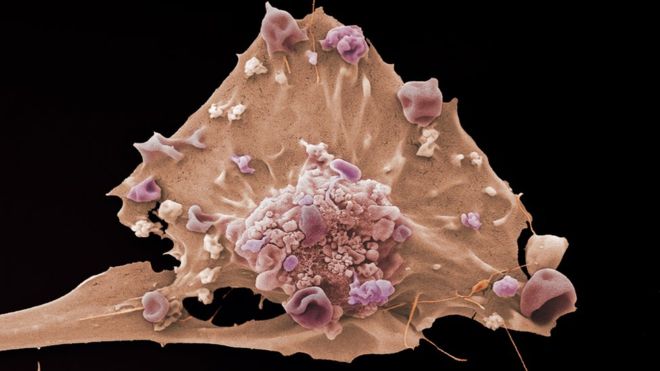Scientists in Manchester are among a team who are developing radical new strategies and technologies to detect cancer at its earliest stage is the bold ambition of a new transatlantic research alliance, announced today by Cancer Research UK and partners.
Early detection is essential to help more people beat cancer – a patient’s chance of surviving their disease improves dramatically when cancer is found and treated earlier.
Understanding the biology of early cancers and pre-cancerous states will allow doctors to find accurate ways to spot the disease earlier and where necessary treat it effectively. It could even enable ‘precision prevention’ – where the disease could be stopped from ever occurring in the first place.
UK statistics highlight the major improvements in survival that could be achieved. 5-year survival for six different types of cancer is more than three times higher if the disease is diagnosed at stage one, when the tumour tends to be small and remains localised, compared with survival when diagnosed at stage four, when the cancer tends to be larger and has started to invade surrounding tissue and other organs.*
Advances in early detection technologies will help decrease late-stage diagnosis and increase the proportion of people diagnosed at an early and treatable stage, so a future for more patients can be secured.
Cancer Research UK is setting out a bold ambition to jump-start this under-explored field of research, collaborating with teams of scientists from across the UK and the US.
The International Alliance for Cancer Early Detection (ACED) is a partnership between Cancer Research UK, Canary Center at Stanford University, the University of Cambridge, the OHSU Knight Cancer Institute, UCL and the University of Manchester.
Great strides have been made through existing screening programmes, such as for bowel, breast and cervical cancer, and increasing public awareness and GP urgent referral of patients with suspicious symptoms. However, for many cancer types no screening tools exist and new technologies for detecting cancer have been slow to emerge.
Previously, researchers taking on this challenge have faced many barriers, including lack of funding and collaboration opportunities, meaning research has been small scale and disconnected. Individual research groups have chipped away at big challenges with limited success. By combining the ‘fire power’ of some of the leading research institutions in the world in early detection, ACED will accelerate breakthroughs, leading to quicker benefits for patients.







